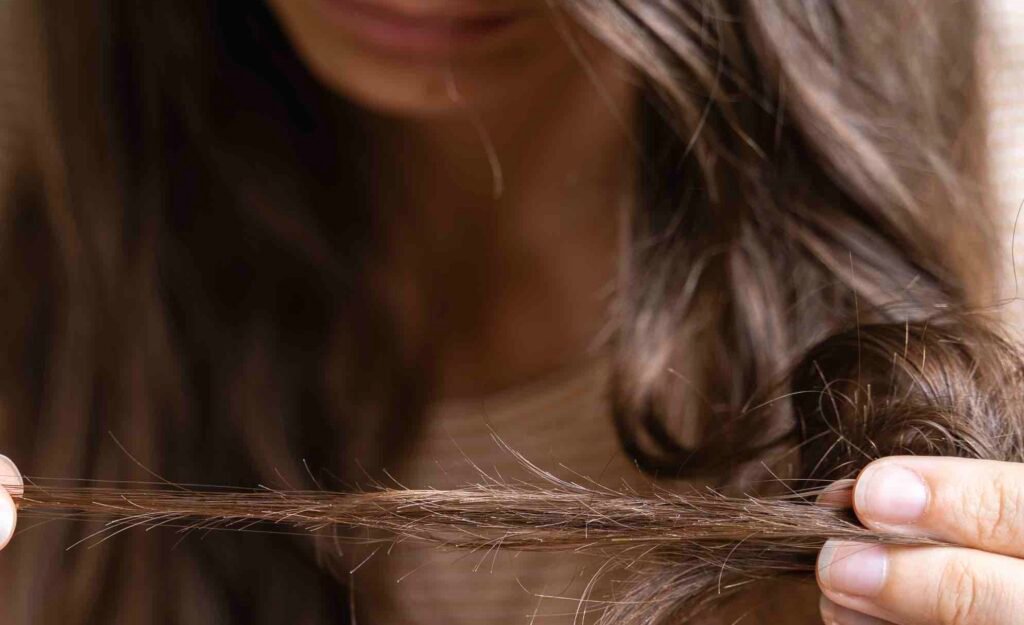Hair loss following COVID-19 has emerged as a concerning issue, shedding light on the varied effects of the virus on our health. Recent studies have revealed that beyond the commonly known symptoms, COVID-19 might trigger dermatological manifestations, including a condition called telogen effluvium (TE). TE, characterized by diffuse hair shedding, has been observed as a post-COVID-19 complication in patients.
In an observational cross-sectional study involving 198 COVID-19 patients, hair loss was reported among 48 individuals after discharge. This phenomenon, termed telogen effluvium, is attributed to the stress and medication regimen associated with COVID-19. It’s noteworthy that TE stems from the premature termination of hair growth, leading hair follicles into a resting phase.
Interestingly, history echoes a similar impact from pandemics in the past, such as the influenza outbreak in 1918, where TE surfaced as a significant issue. In COVID-19 patients, the duration of hair loss averaged around 9 weeks, indicating a relatively shorter period compared to historical cases. The virus induces higher levels of proinflammatory cytokines, contributing to various skin manifestations associated with infection. The immune response, specifically an excess of interferons, might lead to the development of telogen effluvium.
This study underscores the significance of understanding delayed TE as a potential consequence of COVID-19. None of the patients in this study had experienced TE previously, emphasizing the novel association between the virus and this hair loss condition. While this study represents a crucial initial step, further research is essential to unravel the intricate pathogenesis of TE post-COVID-19.
Healthcare professionals need to be vigilant about this delayed occurrence of hair loss in COVID-19 survivors. Exploring the intricate mechanisms and clarifying the pathogenesis of TE linked to the stress induced by the disease could pave the way for more effective interventions. The implications are vast, and deeper investigations are warranted to comprehend and manage this post-viral complication effectively.
Nutritional support is crucial not only for overall health but also for promoting hair health and regrowth. Here are some dietary tips and nutrients that can aid in fostering healthier and more voluminous hair:
Balanced Diet:
Ensuring a balanced diet rich in essential nutrients is key. Incorporate a variety of fruits, vegetables, whole grains, lean proteins, and healthy fats into your meals.
Protein-Rich Foods:
Hair is primarily composed of protein, making it essential for hair health. Include sources like fish, lean meats, eggs, legumes, and nuts in your diet to ensure an adequate protein intake.
Iron:
Iron deficiency can lead to hair loss. Consume iron-rich foods like spinach, lentils, tofu, red meat, and fortified cereals to support healthy hair growth.
Omega-3 Fatty Acids:
These healthy fats support scalp health and hydration. Incorporate foods like fatty fish (salmon, mackerel), flaxseeds, chia seeds, and walnuts into your diet for their omega-3 content.
Biotin:
Also known as vitamin B7, biotin is essential for hair growth. Foods like eggs, nuts, whole grains, and sweet potatoes are good sources.
Vitamin E:
This antioxidant supports hair growth by enhancing blood circulation in the scalp. Incorporate nuts, seeds, spinach, and avocados into your diet for a vitamin E boost.
Vitamin C:
Vitamin C aids in collagen production, crucial for hair structure. Citrus fruits, strawberries, bell peppers, and tomatoes are rich sources.
Hydration:
Staying hydrated is vital for maintaining hair health. Drink plenty of water throughout the day to keep your hair and scalp hydrated.
Supplements:
If your diet lacks specific nutrients, consider supplements after consulting a healthcare professional. Biotin supplements, for instance, are commonly used to promote hair growth.
Avoid Excessive Dieting:
Extreme diets and rapid weight loss can lead to nutrient deficiencies, impacting hair health. Aim for a balanced and sustainable approach to weight management.
Reduce Stress:
Stress can contribute to hair loss. Incorporate stress-reduction techniques like meditation, yoga, or regular exercise into your routine to promote overall well-being, including healthier hair.
Professional Advice:
Consult a healthcare provider or a registered dietitian for personalized advice, especially if you’re considering significant dietary changes or supplements.
By prioritizing a nutrient-rich diet, managing stress levels, and adopting healthy lifestyle habits, you can support your body’s ability to grow stronger, more voluminous hair post-COVID-19 recovery.

